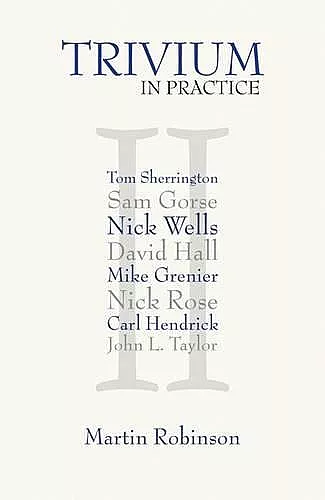Trivium in Practice
Format:Paperback
Publisher:Independent Thinking Press
Published:10th Jun '16
Currently unavailable, and unfortunately no date known when it will be back

Great teaching has the three elements of the trivium at its centre. Grammar: foundational knowledge and skills. Dialectic: questioning, thinking and practising. Rhetoric: the ability to express oneself beautifully, persuasively and articulately in any form. The trivium is a helpful way for a teacher to think about the art of teaching. Through the model of the trivium traditional values and progressive ideals can coexist; both knowledge and cultural capital matter and skills are interwoven with content. The trivium isn't a gimmick to be imposed on to a curriculum; it is a tried and tested approach to education. It is the key to great teaching and learning, as this group of educators discovered. Tom Sherrington and a group of teachers from Highbury Grove School share examples of how they have used the trivium in English, maths, sociology and history, and detail how the trivium has helped them develop a whole school framework for teaching and learning, including a whole school approach to improving spoken English. Sam Gorse explains how the trivium has influenced curriculum planning at Turton School, discussing how it helped departments with differing pedagogical approaches to find common ground. The trivium has influenced them to rethink how they plan the curriculum and use the school space, creating zones where subjects can interact and influence each other. Nick Wells explains how his school used the trivium as a prism through which to view their continuing improvement. By using it to inform a mastery curriculum, he saw how it might help students to fly even higher than they have done in the past - not just in terms of their exam results, but also in terms of their understanding of, and ability to contribute to, the world around them. David Hall, Nigel Matthias and Nick Barnsley used the trivium as a framework to question what they really wanted education to be about a Bay House school. They discuss their approaches to curriculum planning and assessment, using their challenging new sixth form course and their Year 7 Developing Learning Programme as examples. Mike Grenier makes connections between the key tenets of the Slow Education movement and the evolving nature of the trivium: at the heart of both is a respect for the student-teacher relationship and a strong...
ISBN: 9781781352434
Dimensions: unknown
Weight: 306g
192 pages